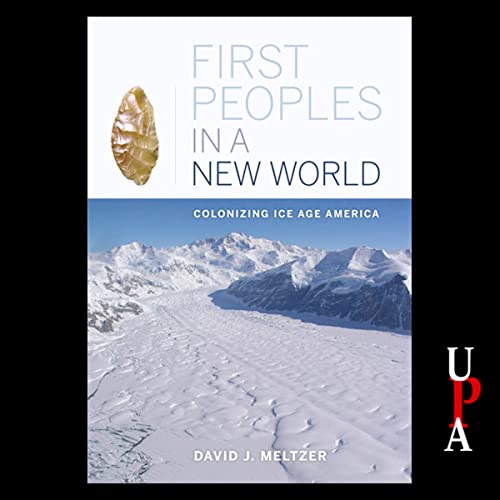
First Peoples in a New World
Colonizing Ice Age America
Échec de l'ajout au panier.
Échec de l'ajout à la liste d'envies.
Échec de la suppression de la liste d’envies.
Échec du suivi du balado
Ne plus suivre le balado a échoué
0,99 $/mois pendant vos 3 premiers mois
 Exclusivité Prime: 2 titres
gratuits à choisir pendant l'essa. Des conditions s’appliquent.
Exclusivité Prime: 2 titres
gratuits à choisir pendant l'essa. Des conditions s’appliquent.
Acheter pour 31,26 $
Aucun mode de paiement valide enregistré.
Nous sommes désolés. Nous ne pouvons vendre ce titre avec ce mode de paiement
-
Narrateur(s):
-
Christopher Prince
-
Auteur(s):
-
David J. Meltzer
À propos de cet audio
More than 12,000 years ago, in one of the greatest triumphs of prehistory, humans colonized North America, a continent that was then truly a new world. Just when and how they did so has been one of the most perplexing and controversial questions in archaeology. This dazzling, cutting-edge synthesis, written for a wide audience by an archaeologist who has long been at the center of these debates, tells the scientific story of the first Americans: where they came from, when they arrived, and how they met the challenges of moving across the vast, unknown landscapes of Ice Age North America. David J. Meltzer pulls together the latest ideas from archaeology, geology, linguistics, skeletal biology, genetics, and other fields to trace the breakthroughs that have revolutionized our understanding in recent years. Among many other topics, he explores disputes over the hemisphere's oldest and most controversial sites and considers how the first Americans coped with changing global climates. He also confronts some radical claims: that the Americas were colonized from Europe or that a crashing comet obliterated the Pleistocene megafauna. Full of entertaining discriptions of on-site encounters, personalities, and controversies, this is a compelling behind-the-scenes account of how science is illuminating our past. The book is published by University of California Press.
©2009 The Regents of the University of California (P)2011 Redwood AudiobooksCe que les critiques en disent
Ce que les auditeurs disent de First Peoples in a New World
Moyenne des évaluations de clientsÉvaluations – Cliquez sur les onglets pour changer la source des évaluations.
-
Au global4 out of 5 stars
-
Performance4 out of 5 stars
-
Histoire3 out of 5 stars
- Utilisateur anonyme
- 2022-09-14
interesting and broad.
while generally well researched and interesting, this read might not bring to much new information to light for those who are already pretty well informed regarding pre-history anthropology. There were still plenty interesting or informative parts, but given the length of the book I had expected slightly more. Also, the author ascribes to overchill theory and spends a good bit of time dunking on overkill theory and it's head proponent but I don't believe he makes a very compelling counter case, largely choosing not to address the question as to why we wouldn't still have Pleistocene mega-fauna in the Canadian north if it was primarily a climate change issue, as well as some other key overkill theory points, while belabouring the easier to contest components of the theory. It's a very low-hanging-fruit argument.This will be a more contentious point for some anthropology geeks depending on where you stand on the issue, though he does make some good points.
Un problème est survenu. Veuillez réessayer dans quelques minutes.
Vous avez donné votre avis sur cette évaluation.
Vous avez donné votre avis sur cette évaluation.




